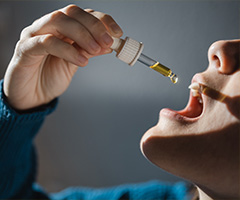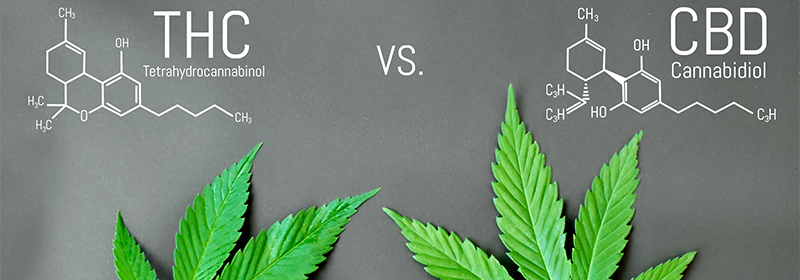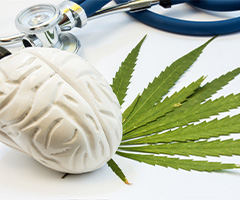Healthcare Applications of Cannabis

Healthcare applications of cannabis garners significant attention for its potential therapeutic benefits across various health conditions. While its use remains controversial and requires further research, existing evidence suggests that cannabis-based medicines can alleviate symptoms for several medical issues. This blog explores these healthcare applications, focusing on chronic pain, spasticity, chemotherapy-induced nausea and vomiting, anorexia and cachexia, epilepsy, multiple sclerosis (MS), posttraumatic stress disorder (PTSD), anxiety, sleep disorders, and other health conditions.
Chronic Pain Management
Chronic pain, lasting over three months, affects millions worldwide, causing significant economic and social burdens. Traditional treatments like antidepressants, serotonin-norepinephrine reuptake inhibitors, and opioid analgesics often offer limited relief and come with adverse side effects such as nausea, dry mouth, fatigue, and constipation. Cannabis-based medicines have emerged as a potential alternative, particularly for patients who have not found relief with conventional treatments.
Research findings indicate:
- Cannabis should not replace first-line treatments for chronic non-cancer pain but can be considered when established treatments fail.
- Cannabis shows moderate benefits for chronic pain, often as an adjunct to or replacement for other pain management therapies.
- It is particularly useful in managing neuropathic pain and may reduce the need for opioid medications.
Spasticity Relief
Spasticity, characterized by increased muscle tone or stiffness, can interfere with movement and cause pain. It commonly results from conditions like spinal cord injury, multiple sclerosis, cerebral palsy, and stroke. Cannabis, particularly cannabinoids, has shown modest efficacy in reducing muscle spasticity in adults with MS and limited success in patients with spinal cord injury.

Studies suggest that while some patients experience relief from spasticity when using cannabis, the effects vary, and more research is needed to determine its long-term benefits and safety, especially in pediatric use.
Nausea and Vomiting from Chemotherapy
Chemotherapy-induced nausea and vomiting are significant side effects of cancer treatment. Cannabinoids such as dronabinol and nabilone have been shown to be more effective than placebos and as effective as other antiemetic medications, albeit with more side effects like sleepiness and dizziness. Despite being approved by the FDA in 1985, newer studies continue to support the use of cannabinoids in improving nausea and vomiting control when combined with traditional treatments.
Anorexia and Cachexia
Unintentional weight loss and muscle wasting, known as cachexia, are common in chronic diseases like cancer and AIDS. Dronabinol is FDA-approved for treating appetite loss in HIV/AIDS patients, but evidence for its effectiveness in cachexia remains limited. While cannabis can stimulate appetite and improve quality of life, more research is needed to confirm its benefits and establish clinical recommendations.
Epilepsy and Seizures
Epilepsy, a common neurological disorder, often presents with seizures resistant to medication. Cannabinoids, particularly CBD, have been studied for their anticonvulsant properties. Epidiolex, an oral CBD product, is FDA-approved for treating severe forms of epilepsy like Lennox-Gastaut syndrome and Dravet syndrome. Research shows CBD reduces seizures in various pediatric epilepsies, though the exact mechanisms remain unclear.

Multiple Sclerosis (MS)
MS, a chronic disease affecting the central nervous system, can cause symptoms like spasticity, pain, and bladder issues. Cannabinoid products, including dronabinol, nabilone, and nabiximols, have shown small improvements in these symptoms. Healthcare applications of cannabis for MS should be evaluated on a case-by-case basis due to variable responses and potential side effects.
Posttraumatic Stress Disorder (PTSD)
Healthcare applications of cannabis for PTSD sufferers, including many veterans, have turned to cannabis for symptom relief, though robust clinical evidence is scarce. Animal studies suggest benefits, but legal restrictions have limited human research. Preliminary studies indicate that THC and CBD combinations may reduce PTSD symptoms, but more extensive trials are needed to confirm these findings.
Anxiety
Cannabis has shown potential in reducing anxiety symptoms, but clinical trials are in early stages. Retrospective studies suggest some effectiveness of medical cannabis in treating anxiety and depression. However, more rigorous research is required to validate these findings and address methodological flaws in existing studies.
Sleep Disorders
Cannabis and cannabinoids have mixed effects on sleep, with short-term use showing improved sleep quality and long-term use leading to increased sleep disruption. Studies have found benefits in better sleep quality and fewer disturbances in patients with conditions like PTSD and chronic pain. However, it’s unclear if these improvements are due to direct effects on sleep or relief of underlying symptoms.

Other Health Conditions
The National Academy of Sciences notes insufficient evidence to conclusively support the use of cannabis for treating conditions like cancer, irritable bowel syndrome, Parkinson’s disease, dystonia, dementia, and schizophrenia. However, THC capsules have shown effectiveness in improving symptoms of Tourette syndrome.
Conclusion
Cannabis presents a promising alternative or adjunct treatment for various health conditions, from chronic pain and spasticity to epilepsy and PTSD. While initial findings are encouraging, extensive research and clinical trials are crucial to fully understand its therapeutic potential, establish efficacy, and ensure safety. As legal and societal acceptance of cannabis continues to evolve, so too will our understanding and utilization of this complex plant in medical practice.
Continue Your Education
To learn more about the healthcare applications, legal and ethical issues, history, and effects of medical cannabis, check out our Certificate in Medical Cannabis or take the individual course on Healthcare Applications of Cannabis.
Medical Cannabis Series
Post 2 of 5







